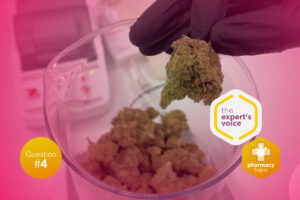Current knowledge does not allow us to define with certain accuracy the origins and cause of endometriosis, although one thing is certain – it all starts with inflammation, making endometriosis an inflammatory disease. The most common theory states that it all starts during the menstrual cycle, where some of the endometrial tissue pieces move backwards through uterine tubes into the peritoneal cavity (between the abdominal wall and the membrane surrounding internal organs). When this phenomenon occurs, the debris transforms into endometriosis, which we call the ectopic endometrium (outside of the uterus), forming lesions that are a source of inflammation and other symptoms.
The eutopic endometrium, which is the endometrium that remains inside the uterus, can be shed normally, leaving us with ectopic endometrium that cannot be removed by the cycle itself and which continues to be inflamed. A crucial factor that remains inside endometriosis lesions is blood, which degrades and causes a Fenton reaction, releasing ROS (reactive oxygen species) which can cause cell death and propagate inflammation, thus initiating the spread of ectopic endometrium. Overexpression of inflammatory mediators like COX-2 or TNF (tumor necrosis factor) continues to propagate inflammation, immune system responses and angiogenesis (blood vessel formation).
All of these processes unite in an infinite loop, creating a chronic condition with uncontrolled tissue growth, in many aspects similar to cancer. Our bodies consider endometriosis lesions as a foreign body – that is why we are witnessing immune system responses and strong inflammation. Along with strong inflammation also comes heavy dysregulation in hormonal status, presenting itself with lower PR (progesterone receptor) and higher ER (estrogen receptor) pathways activity in ectopic endometrium due to increased E2 (estradiol) production. Initial treatments often include hormonal therapies with E2 inhibitors in order to create a hypoestrogenic status.
Often, hormonal therapy does not provide desired effects and is accompanied by numerous side effects, including bleeding, osteoporosis, increase in weight and psychological disturbances. In general, we usually connect endometriosis development to disturbances in post-menstrual cycle uterus regeneration. Progenitor and stem cells, responsible for the processes, have a potential to escape the cycle management by escaping the immune control mechanisms and establishing ectopic lesions, which act as primary sources of inflammation.
Endocannabinoid system (ECS) is directly connected to endometriosis lesions and has been proven to be thrown off-balance. ECS is highly involved in regulation of the MAPK signaling cascade, which is one of the mechanisms responsible for lesion creation in endometriosis. MAPK proteins are active in various inflammatory responses such as oxidative stress, heat shock or apoptosis. Activation of endocannabinoid receptors has been proven to reduce the MAPK cascade activity, followed by decreased cell proliferation and inflammation. Endometriosis patients being affected not only by heavy inflammation but also by pain can benefit from ECS stimulation that can result not only in symptom attenuation but also in reductions of lesions. Endocannabinoid receptor expression is off-balance as well, resulting in significantly lower CB1 and CB2 receptor expression in the lesions, creating a lack of anti-inflammatory and pain modulation pathways. Levels of endocannabinoid catabolizing enzymes like FAAH, NAPE-PLD, MAGL and DAGL are decreased as well, contributing to slower degradation and an abundance of AEA, which can also affect lower receptor expression in a negative control mechanism loop.
Therefore, signaling pathways directly affecting CB1 and CB2 receptors show us a clear path to reversing the effects of ectopic endometrial lesions and removal of painful symptoms, giving hope to many women globally who are struggling with this persistent disease. Further scientific research and clinical trials are more than needed to advance with the therapies and to assess deeper the connections and interactions between numerous systems and mechanisms involved in complex endometriosis processes.





